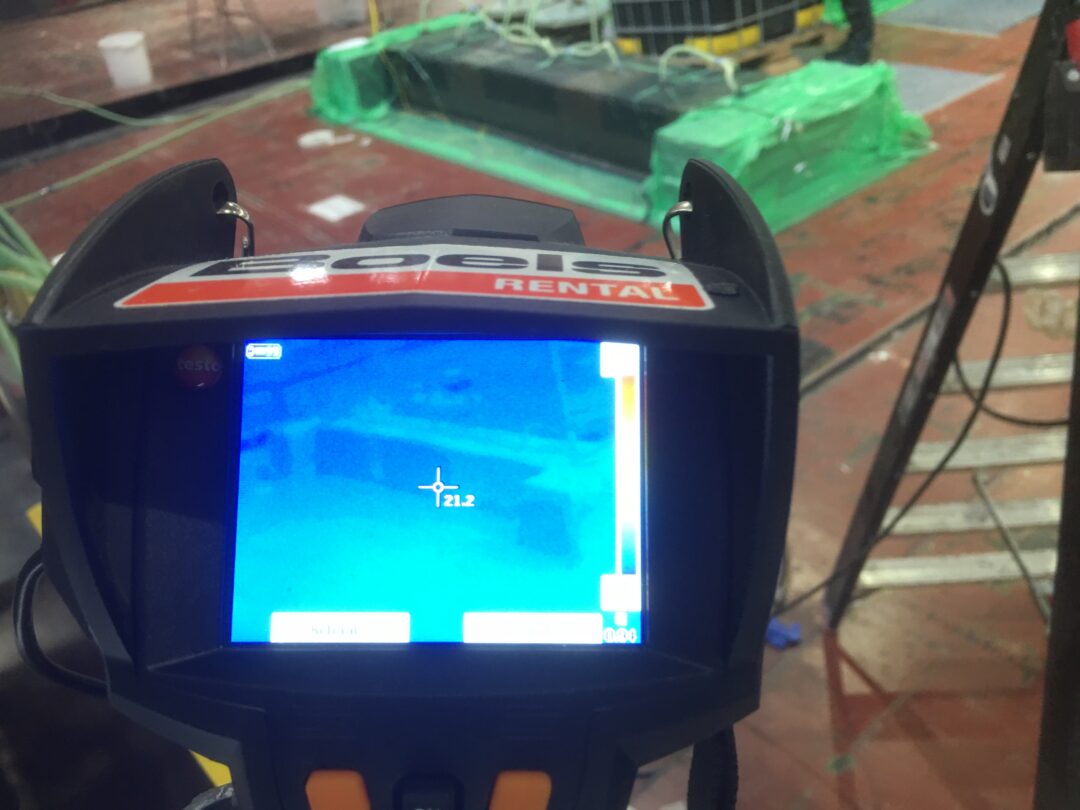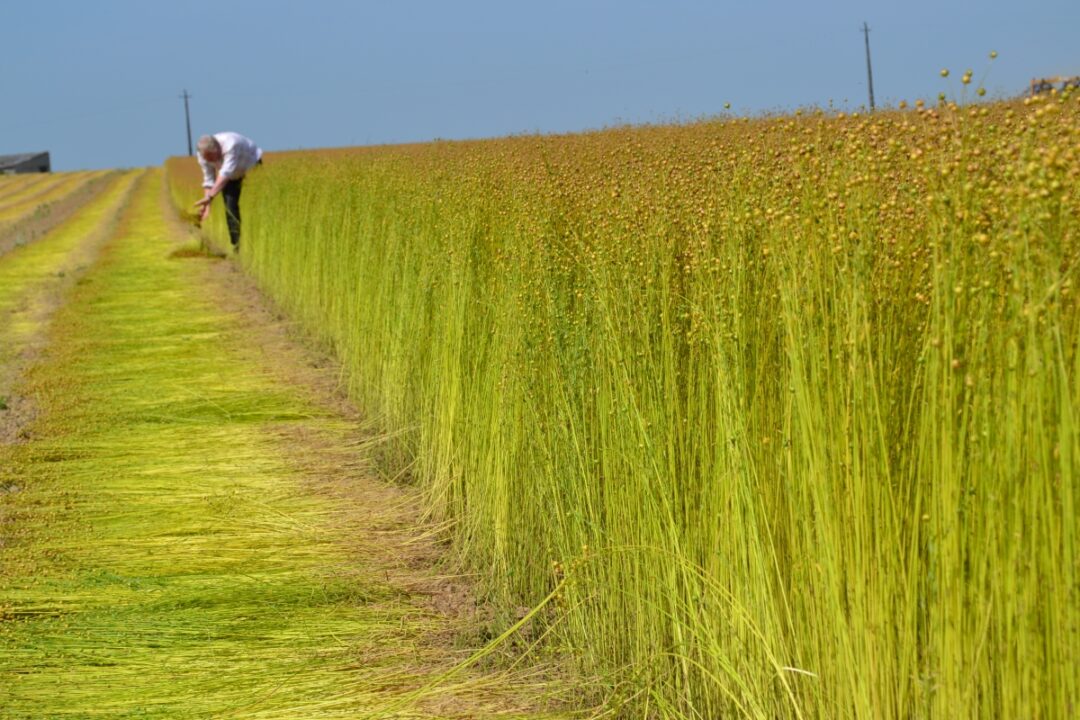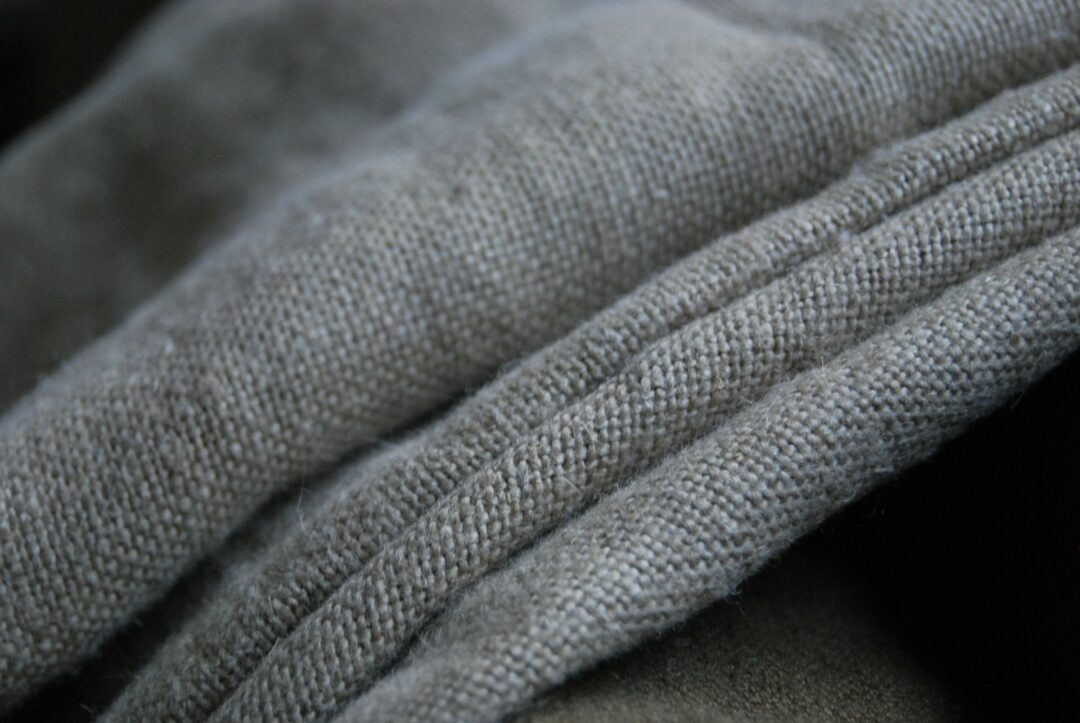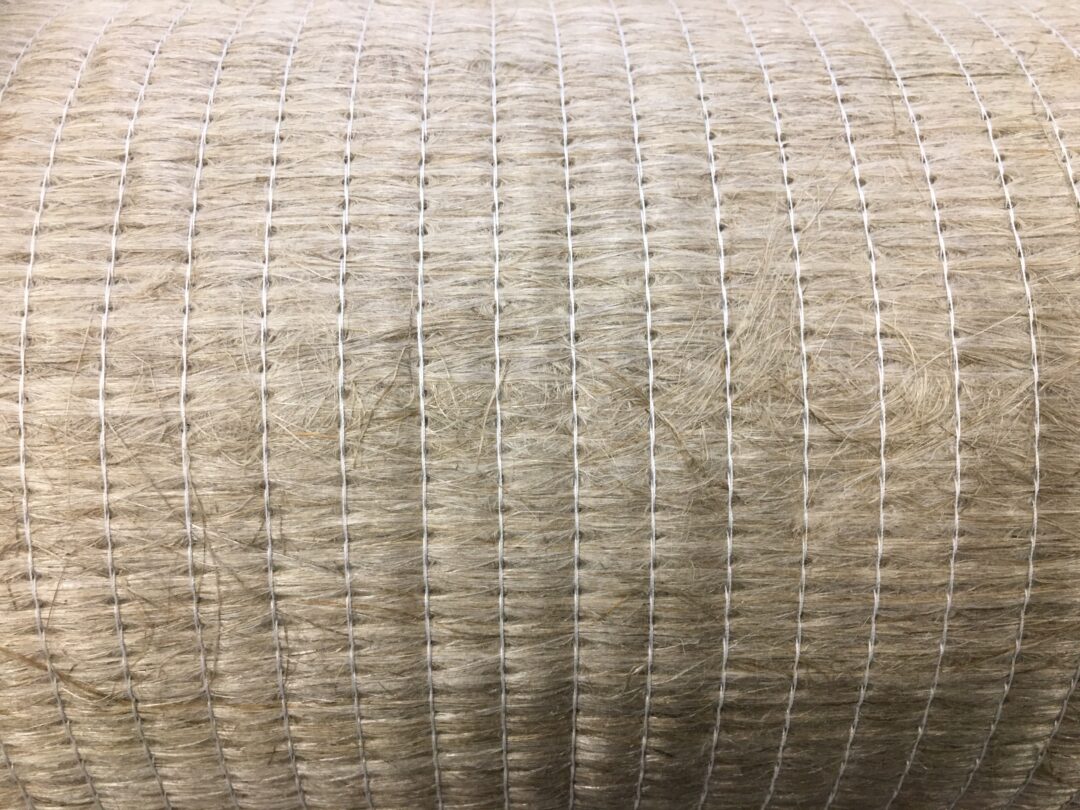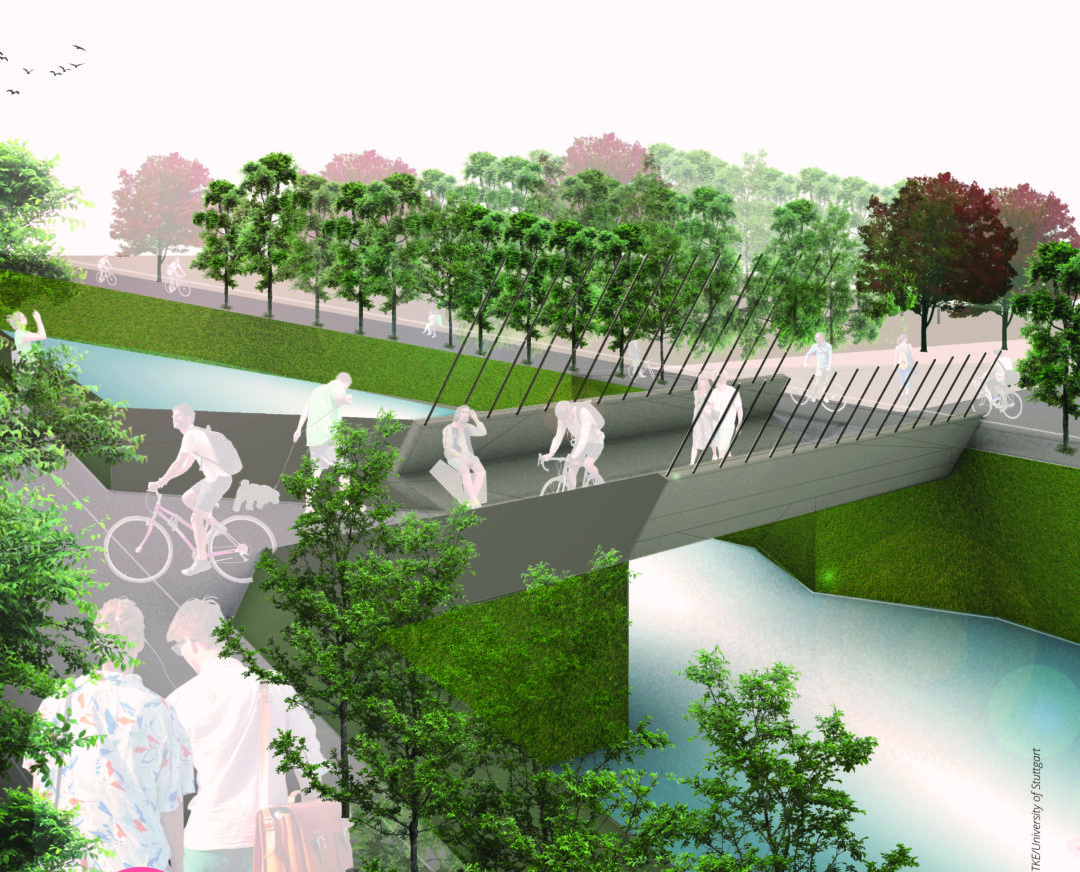FiberCore Europe participates in EU project Smart Circular Bridges
As part of EU program Interreg, FiberCore Europe is producing three bridges made of bio-composites. Here, natural plant fibers and biopolymers are used to create load-bearing structures. This opens up exciting perspectives on sustainability and material circularity for future bridge structures. A Structural Health Monitoring system integrated into the bridges measures structural safety and provides new insights into the use of materials in load-bearing structures. After laboratory-scale tests and a first round of production, FiberCore Europe recently produced two panels measuring approximately 0.4 x 3.0 meters. This tests the manufacturability and behavior of the materials during the production phase against the previous tests.
Three circular bridges
Combating climate change and striving for a circular economy are becoming increasingly important in the construction industry. Sustainability and material circularity are therefore an important theme at FiberCore Europe. Load-bearing structures offer great potential, especially if they are based on renewable, non-fossil materials. Within EU project Smart Circular Bridges, FiberCore is currently producing three pedestrian and bicycle bridges with bio-composites. This summer, the first bridge will be installed in Almere (NL). This bridge is part of the Floriade 2022, which takes place next year and will focus on the theme "Cities of the Future." Two other bridges will be installed in Ulm (DE) and Bergen op Zoom (NL).
Bio-composites
These so-called "Smart Circular Bridges" are made of bio-composites. Like conventional composites, they consist of two materials: natural fibers such as flax and hemp provide the stiffness and strength, and the bio-resin binds the fibers together, resulting in a strong and lightweight material. Bio-composites offer great freedom of form and allow structurally optimized and material-efficient - yet elegant - designs.
Monitoring
A sophisticated monitoring system is used in the Smart Circular Bridges. By using fiber optic sensors (FBG-s), the structural and material condition as well as the structural safety level is continuously monitored. The Structural Health Monitoring system detects structural changes and possible material degradation such as creep and fatigue. It can provide an early warning if preset limits are reached. The in-situ data collected from the bridges in the project will be compared with extensive research and laboratory test data (using accelerated aging and creep deformation tests). The monitoring system will collect information on mechanical response, dimensional changes, and environmental effects such as temperature and humidity. Combining the laboratory tests with constant in-situ monitoring data will not only ensure the highest level of operational safety, but also collect extensive valuable information for planning and optimization of further bridges and other structures.


